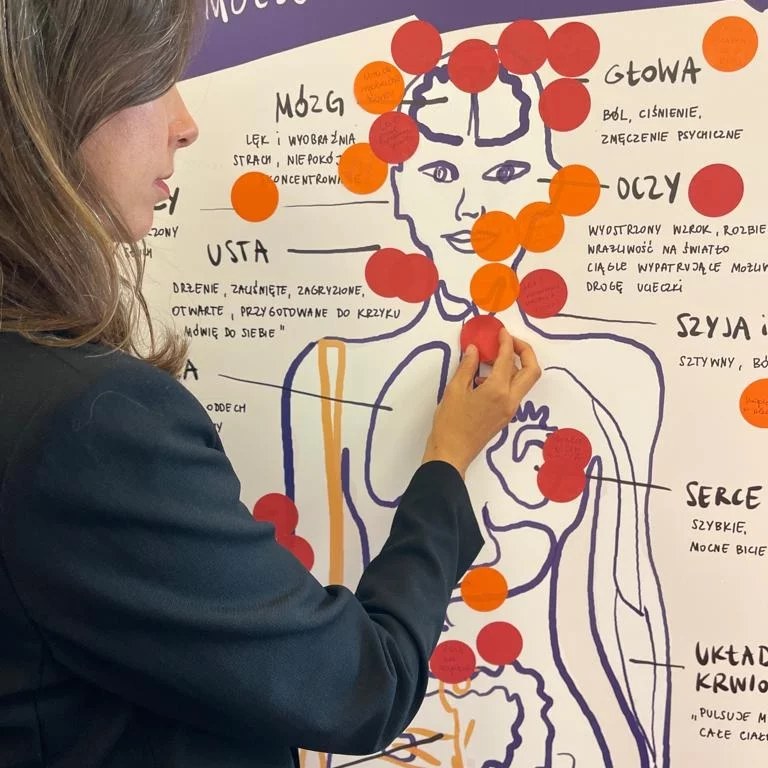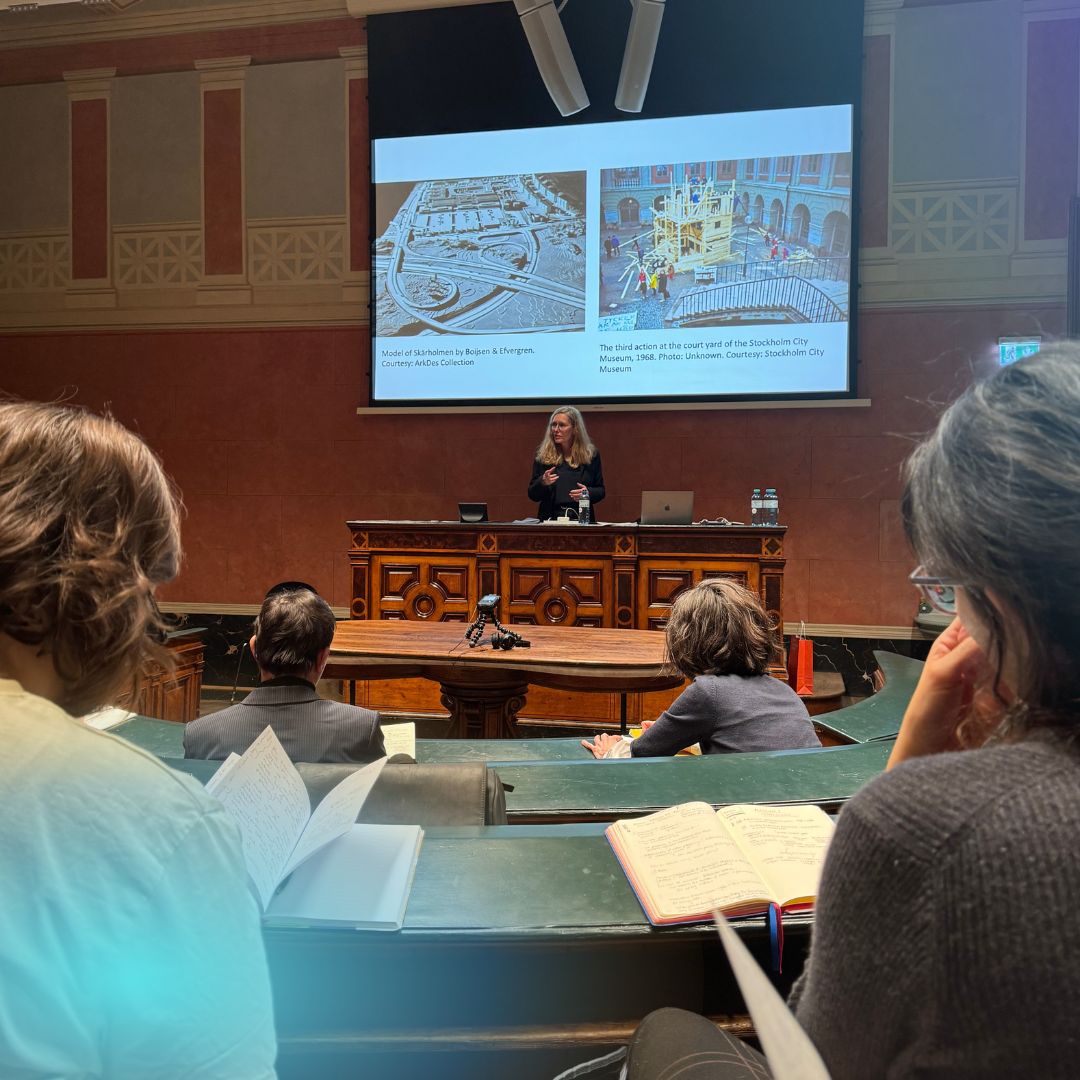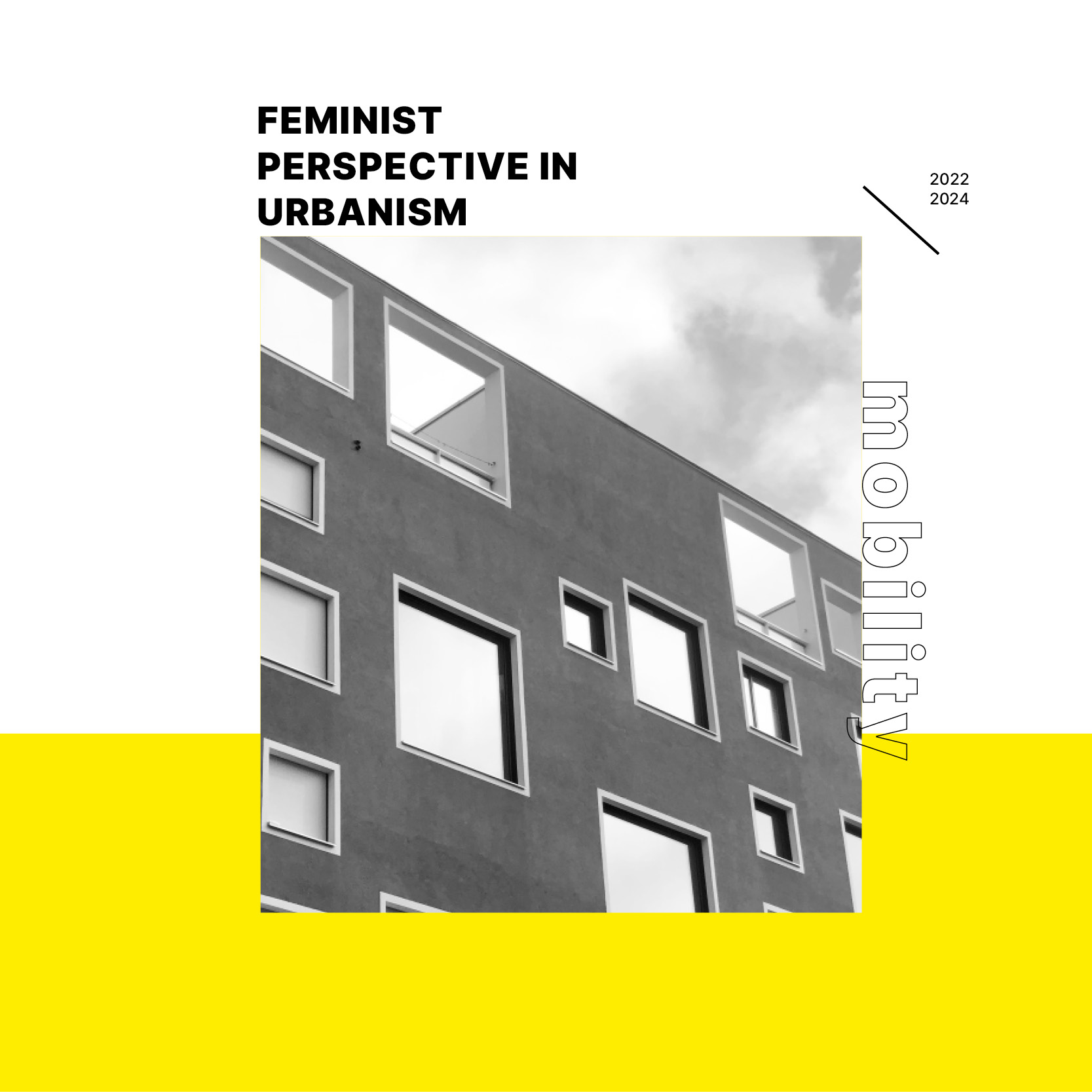The Katarzyna Kozyra Foundation, together with the interdisciplinary collective Architektoniczki, is currently implementing a mobility programme funded by the European Union. The aim of the project is, among other things, to establish transnational cooperation with organisations that deal with gender issues in urban planning. The programme focuses on demonstrating the influence of women in the urban development of places and, consequently, in the creation of social relations.
Architektoniczki explore not only the stories of female architects but also their often marginalised contribution to the functioning of human beings in public space. In doing so, they are motivated both by a desire to educate and to exchange knowledge and professional experience in the spirit of sisterhood.
Barcelona
The first point in the ongoing project was a visit to the Catalan capital. During their stay, Architektoniczki attended lectures and workshops organised by Colectivo Punt 6, which specialises in feminist urbanism. These focused on women’s mobility on public transport and limited access to public toilets. The field classes, on the other hand, focused on analysing the city from the perspective of inclusivity.
Inspired by their collaboration with the collective, Architektoniczki created the roll-up ‘ONA’ (‘SHE’), depicting the mental and physical well-being of women walking through the city at night. It played an important role during the Women’s Congress in Poland; participants in the event placed stickers with their emotions on the project on the parts of the body where the declared feelings accumulated.

During their visit to Barcelona, the female architects visited the Equal Saree studio, where they discussed equality in educational spaces. The whole visit focused on the impact of space on people’s wellbeing, relationships with the environment and community health.
Berlin

The August visit was not only marked by feminist urbanism, but also by communal, or perhaps one should even say community architecture.
Architektoniczki met with the fem arc collective, activities of which are dictated by an intersectional perspective. The workshop conducted dealt with the topic of gossip as a phenomenon that creates community in the city. The German collective seeks to disenchant the negative connotations of gossip by highlighting its historical role in community building.
The female architects also participated in a workshop on delineating spaces in the city and working on thematic areas such as street names, representation, power mobility and personal safety. For this, they used Fem*map, a feminist map of Berlin, analysing the entire city in terms of gender. They then met with representatives of Coopdisco, an organisation that works on designing places as common goods, that is, accessible and protected from privatisation.
The visit to the German capital culminated with a visit to the FLINTA space, the largest shared space for women in the city. The participants gained valuable experience in the architectural celebration of diversity, which is necessary to transfer to Poland.
Stockholm

During a visit to Stockholm, Architektoniczki worked with Living Cities and Communities collective, which contributes to innovative solutions for inclusive, resilient and dynamic cities, places and organisations through its work. They attended a lecture on women’s mobility, safety in urban centres and access to toilets, and toured the city from a feminist urbanism perspective.
Architektoniczki also met with the Sveafastigheter, a company focusing on creating spaces for girls in response to perceived exclusion in the city. The training was used to learn how to address the needs of teenage girls in the design of public spaces.
The trip ended with a walk through a neighbourhood with a predominantly immigrant community. The space has been transformed in a pro-social, inclusive way, making it welcoming to all its users. Stockholm thus proved to be a city not only focused on accessibility but also on celebrating and accepting diversity.
Cergy (Paris)

The Katarzyna Kozyra Foundation held a week-long job-shadowing (observation of work) of the Les Ateliers association in Cergy, near Paris, which for 40 years has been engaged in urban analysis and education towards the creation of inclusive, green and open cities.
Les Ateliers – the international workshops of planning and urban design – in its own words “aims to develop the collective creation of ideas that address the challenges and processes of everyday urban planning and design by promoting a process of collective and multidisciplinary work that creates innovative and illustrative proposals related to urban design and spatial development.” Being able to observe the organization’s work was all the more crucial because it offers workshops in the form of mobilities. This was a unique approach in terms of education, which the Katarzyna Kozyra Foundation itself is currently benefiting from thanks to support from the European Union. During our stay, we learned how mobility is managed, how candidates are selected, how the methodology is tailored to the country, and how the organization strives to meet its program goals.
Les Ateliers educates in a forward-looking way, very much based on collectivity and interdisciplinarity. The association organizes annually multidisciplinary workshops open to sociologists, urban planners, architects, artists and people interested in activities related to transforming cities. Les Ateliers establishes relationships in advance with city managers around the world to conduct workshops directed at exploring and trying to present a possible solution to a local problem that the city faces. Typically, these activities are also at the intersection of many areas – e.g., running urban gardens, managing green waste, transforming energy. In addition, the association seeks to act locally in its neighbourhood, organizing workshops in and around Paris. As an organization with a history of more than 40 years, with around 200 male and female members, many of them are involved in the co-creation of the methodology, offering their expertise, or participation, as teachers/lecturers/leaders in some of the workshops.

Another trip as part of the mobility project took place in Vienna, where the Katarzyna Kozyra Foundation was warmly hosted by women who are involved in the field of feminist city planning and co-create the SOAKED association, responsible for amazing initiatives in this area. The members included: Elke Krasny, who is passionate not only about architecture and urban planning but is also a curator, author, and researcher of cultural and urban theories, accompanied them and Claudia Lomoschitz, a visual artist and performer who explores the impact of architecture on women’s reproductive practices in her work, also joined the group.
The visit to Vienna was full of new discoveries, workshops, and nighttime walks through the city streets to observe architectural “blind spots” that evoke a sense of danger. Additionally, this time was spent studying the urban design of two neighbourhoods – Sonnwendviertel and Seestadt Aspern, both examples of the repurposing of architecture and design in a contemporary, interesting, and socially thoughtful way. From communal spaces such as rooftop libraries, open kitchens, saunas, or relaxation rooms to the implementation of a gender perspective in architecture. Analysing these neighbourhoods was a highlight of the trip, from which the organisation proceeded towards art – one of these elements being Claudia’s fantastic work at Kunsthalle Wien. The foundation also visited the Az W Architekturzentrum Wien and MAK – Museum of Applied Arts, where architectural inspirations could be further explored. Finally, the foundation also explored the Verbund AG art collections at the Albertina Museum of Contemporary Art, full of works by women and queer artists.
This trip provided the foundation with new perspectives and motivation to further research on urban planning with the consideration of gender perspectives.
EDUCATIONAL MATERIALS
On the 6th and 7th of February, a conference was held as an extra activity to the mobilities project, supported by the European Union. In addition to our trips to various European cities, we had the opportunity to host two experts at the ZODIAK Architectural Pavilion in Warsaw – Dr. Sara Ortiz Escalante and Dr. Bahar Sakizlioglu. Recordings of these interesting lectures can be viewed below. We encourage you to explore the materials!
Dr Escalante delivered the first lecture, discussing her collaborative work in Barcelona with the Col-lectiu Punt 6 collective and the nature of their work. She also addressed the broader topic of inequalities evident in the architecture and urban planning, using statistics. Audiences had the opportunity to learn about the testimonies of Catalonia residents who feel that the city does not promote a sense of security and is not tailored to the needs of the most vulnerable. Dr. Sara discusses this extensive topic in an engaging and concise manner, supported by sources, so we encourage you to watch the recording.
The next specialist we had the pleasure of hosting was Dr Bahar Sakizlioglu, an urban sociologist from Turkey, who took the audience on a small journey through the streets of Istanbul during her presentation. Throughout the lecture, one could observe the nature of the changing urban landscapes over the years associated with the phenomenon of gentrification. Dr Sakizlioglu analyses the impact of this phenomenon on the least privileged groups, thereby recognizing both the advantages and negative aspects of this phenomenon. Additionally, attendees could learn more about the impact of urban and domestic architecture on the role of women in society, as well as the factors influencing women’s decision-making about motherhood.
Additionally, we have prepared a ZINE, available below, summarising our discoveries during the project.
________________________________________________________________________________________________
Sfinansowane ze środków UE. Wyrażone poglądy i opinie są jedynie opiniami autora lub autorów i niekoniecznie odzwierciedlają poglądy i opinie Unii Europejskiej lub Europejskiej Agencji Wykonawczej ds. Edukacji i Kultury (EACEA). Unia Europejska ani EACEA nie ponoszą za nie odpowiedzialności.

